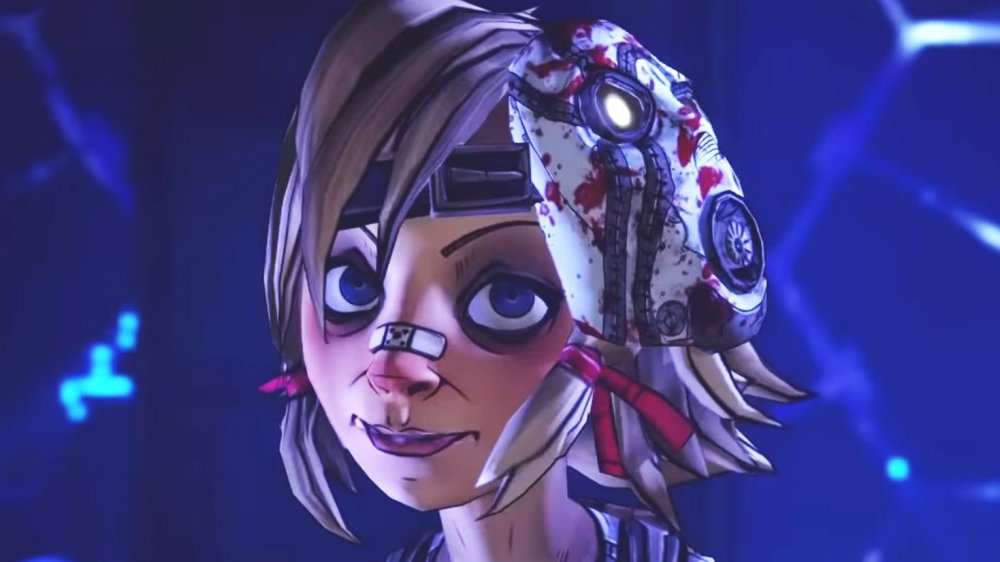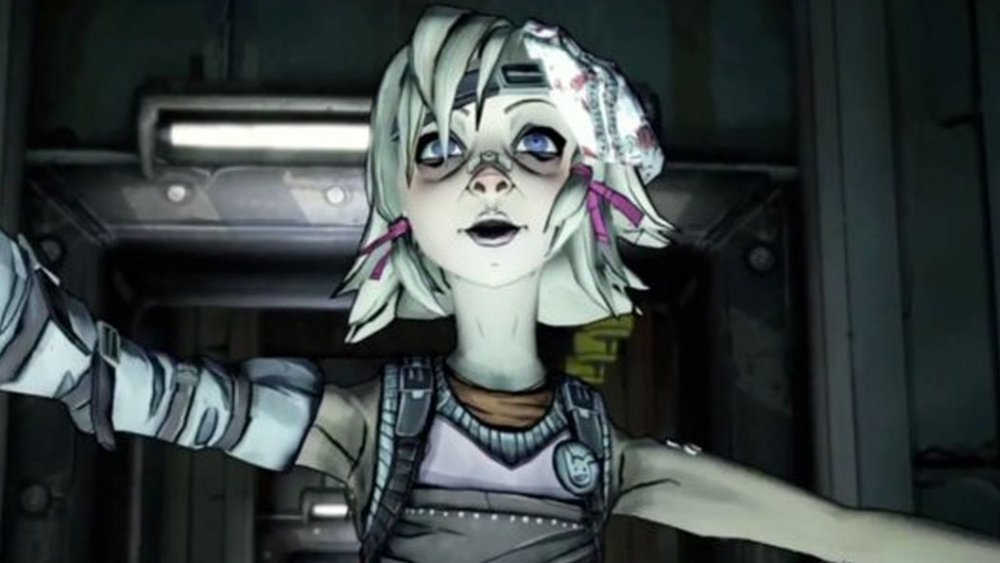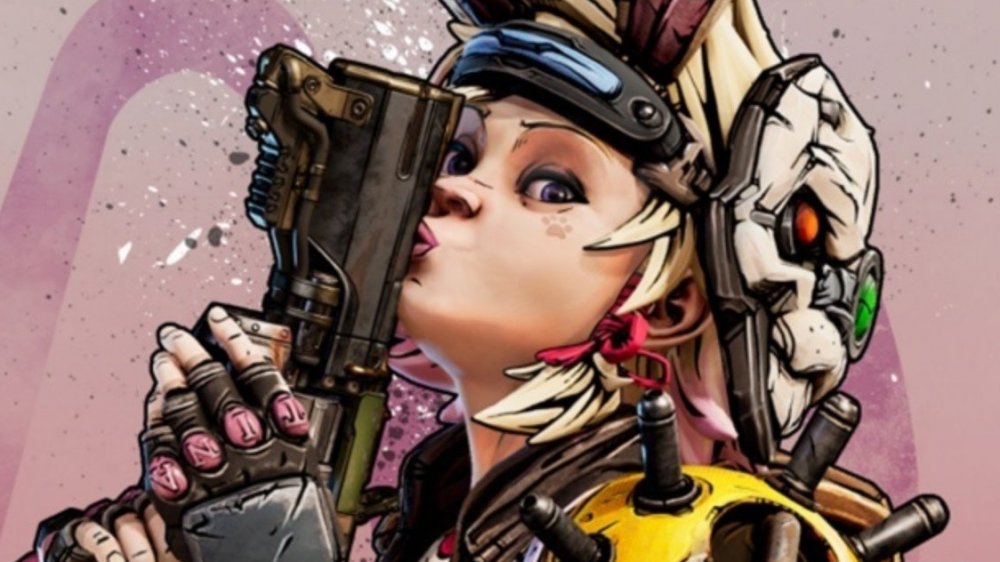This Is Why Borderlands' Tiny Tina Is Such A Controversial Character
The Borderlands series is full of creepy moments and missions that are practically impossible, but perhaps the franchise's greatest controversy centered on one character. Tiny Tina is a character first introduced in Borderlands 2, where it became immediately clear that she was a little bit ... different from the other heroes. Tina is a young girl and a demolitions expert, apparently becoming a bit of a genius at making things go "boom" when she lost her parents (and seemingly her mind) at an early age.
At multiple points in Borderlands 2, she makes jokes and carries on in dialogue that resembles some type of faux-Ebonics. While this aspect could be seen as just another of Tiny Tina's quirks, some people did not take too kindly to it. In fact, in a game that also includes characters with names like "Butt Stallion" and "Face McShooty," Tiny Tina ended up being the most controversial of them all.
Aside from the fact that many gamers found Tiny Tina to be downright annoying, the character's dialogue was criticized as being hackneyed at best, and racist at worst. This is where the controversy surrounding Tiny Tina really began.
What's the problem with Tiny Tina?
Shortly after the release of Borderlands 2, there was some concern that Tiny Tina's dialogue could possibly be seen as a form of cultural appropriation. This was most notably expressed by game developer Michael Sacco, who worked for Cryptozoic Entertainment at the time. Sacco tweeted that he mostly liked the game's writing, but felt that Tina's use of Ebonics needed to stop.
In a pitched argument on Twitter (which was deleted, but has been saved by Kotaku), Borderlands 2 writer Anthony Burch responded that he had no intentions of changing Tina, and he was fine if people were annoyed by her. Sacco tweeted that he felt the character wasn't merely annoying, but "actively racist." Eventually, Burch told fans that he would be happy to change Tina if she "truly is problematic."
The controversy was compounded by the release of the Borderlands 2 DLC called Tiny Tina's Assault on Dragon Keep. At one point in this adventure, Tina appeared to address the debacle by announcing that she was "not racist." However, the developer later informed Kotaku that this line had been written and recorded prior to the controversy, and was just an awkward coincidence.
The fallout of the Tiny Tina controversy
While arguments over Tiny Tina's dialogue in Borderlands 2 mostly died down, there was an unfortunate postscript to Sacco's story. In a tweet that has since been deleted (via Kotaku), Sacco announced that Cryptozoic had been pressured into severing ties with him, and that he had decided to resign. While Sacco did not go into great detail regarding this decision, it seemed to be tied to the Tiny Tina debacle. He tweeted, "In the end this came down to me and the things that I believe in so I feel okay about it."
In a statement to Kotaku, Cryptozoic stated that Sacco was not an employee, but a contractor, and that leaving Cryptozoic was his own decision.
Tiny Tina would eventually return in Borderlands 3 as an older and (slightly) wiser character, but with many of her quirks intact. Borderlands 3 came with plenty of controversies of its own, including review bombing from Steam users, but it seems as though Tiny Tina's dialogue wasn't quite as egregious as it had been before. Still, in a franchise that prides itself on being subversive, Tiny Tina stands out as one of Borderlands' most divisive components.



